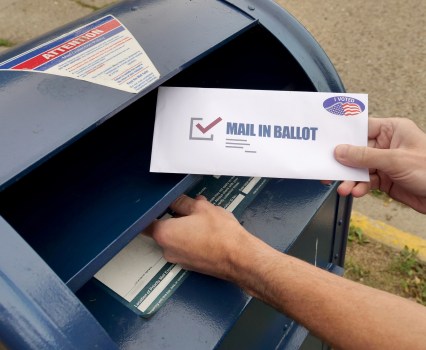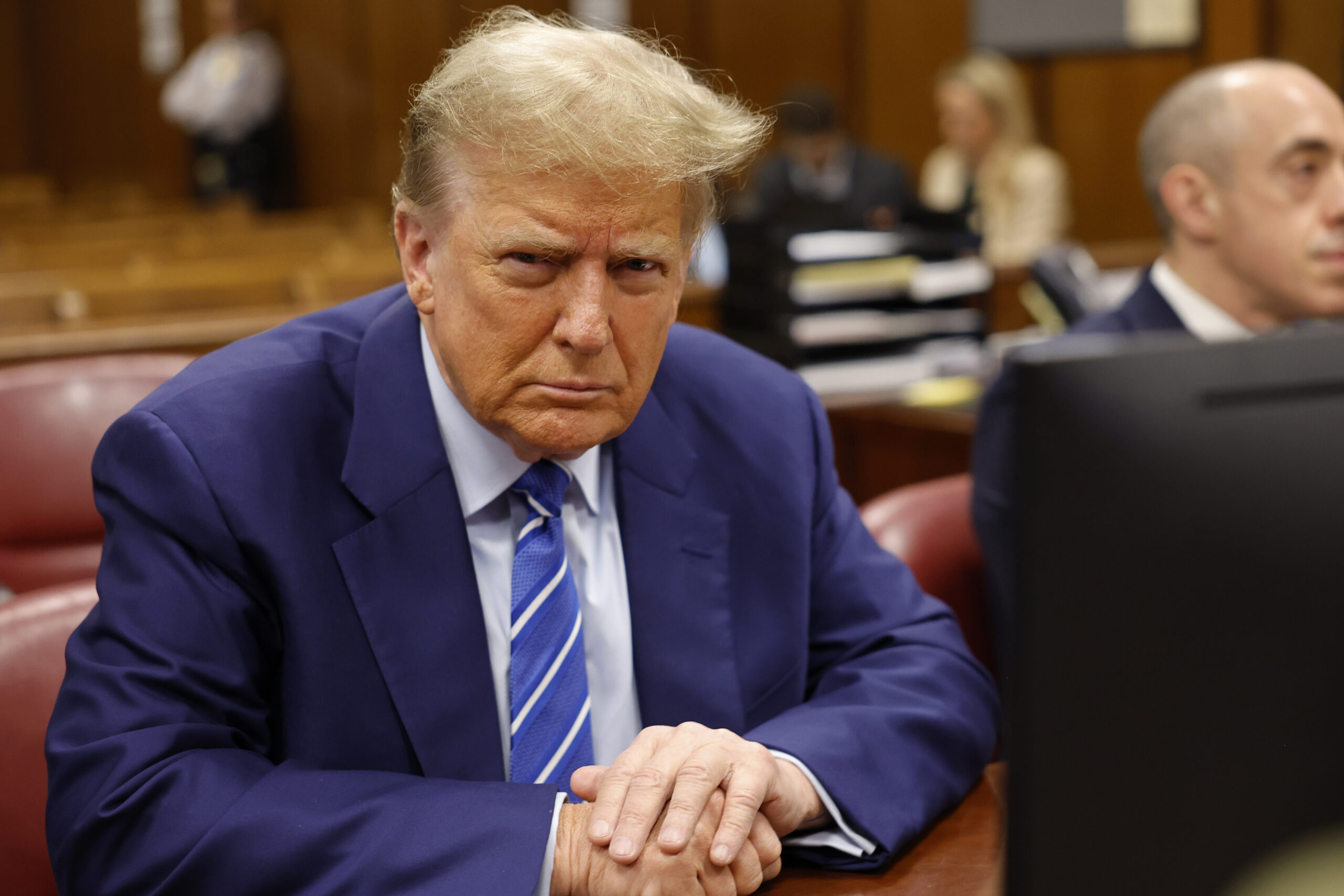Like many states, Mississippi counts absentee ballots that arrive at election offices by mail after Election Day—up to five business days after—so long as the ballots are postmarked on or before Election Day itself. Last week, a three-judge panel of the U.S. Court of Appeals for the Fifth Circuit heard an appeal in two consolidated cases brought by the Republican National Committee (RNC) and the Libertarian Party of Mississippi that challenge Mississippi’s law that allows for the counting of ballots that arrive after Election Day. We argued in a prior column, shortly after the Complaint was filed, that the RNC’s challenge was weak on the merits. As explained in more detail below, the district court also found (for somewhat similar reasons) that the attack on Mississippi’s laws was unpersuasive, hence the appeal heard last week.
Even assuming that late-mailed ballots (like mail-in ballots more generally) are likely to tilt Democratic, the validity of Mississippi’s law in particular would seem to be of little significance to the RNC in this year’s presidential election: the state is solidly Red. But even in Red states there are always some close down-ballot races, and on top of that, a ruling by the Fifth Circuit against Mississippi could lay the foundation for challenges to similar laws in other states that could meaningfully impact the outcome of the November presidential election as well as control of the House and Senate.
What the Constitution, Federal Law, and Mississippi Statutes Say
The Constitution does not require contests for federal offices to be held on any particular date. Instead, the Constitution leaves the specific timing of federal elections in the first instance to states, and then confers power on Congress to regulate timing if and how it chooses: As to the selection of President and Vice President, Article II provides that “[e]ach State shall appoint, in such Manner as the Legislature thereof may direct” electors for President and Vice President, and gives Congress power to “determine the Time of chusing the Electors . . .” For members of Congress, Article I specifies that “[t]he Times. . . of holding Elections for Senators and Representatives, shall be prescribed in each State by the Legislature thereof” and specifies further that “the Congress may . . . by Law make or alter such Regulations . . .”
Pursuant to its granted authority, Congress has mandated that “[t]he electors of President and Vice President shall be appointed, in each State, on [E]lection [D]ay, in accordance with the laws of the State enacted prior to [E]lection [D]ay,” with “Election Day” defined as “the Tuesday next after the first Monday in November, in every fourth year” (emphasis added). So, too, Congress has set the familiar date—the first Tuesday following the first Monday in November every two years—for elections to the House and the Senate.
The Mississippi statute at issue in the case now before the Fifth Circuit provides in relevant part:
Absentee ballots and applications received by mail . . . or common carrier, such as United Parcel Service or FedEx Corporation, must be postmarked on or before the date of the election and received by the registrar no more than five (5) business days after the election; any received after such time . . . shall not be counted.
The Competing Positions in This Litigation
The plaintiffs contend in their lawsuit that this state law conflicts with the federal Election-Day requirements and is thus void. According to the plaintiffs, the terms “election” and “Election Day” refer to the final date on which ballots, if they are to be counted, must be received by—that is, in the custody of—state election officials. The Mississippi defendants, by contrast, argue that federal law requires merely that votes be cast on or before election day, leaving states free to regulate when such timely cast votes are received and also counted. (Significantly, the plaintiffs do not contend that federal law bars a state from accepting and counting early ballots—those that arrive prior to Election Day, a claim the Fifth Circuit had already rejected in a 2000 case.)
As noted above, the district court granted summary judgment to the state defendants. Citing language from Supreme Court cases, the district court reasoned that the word, “election” refers to the “final selection” of an officeholder. Under this definition, the court ruled, the Mississippi law was valid: because all of the ballots that Mississippi chooses to count involve voter selections made before or on Election Day, there was no conflict with the federal requirement. In addition, the district court reasoned, the Mississippi statute was perfectly consistent with the broad congressional goals of furthering voting opportunities and setting a uniform national Election Day that prevents results in some states from being influenced by voting outcomes in other states.
We think the district court’s essential reasoning was correct and clearly so. And although oral argument does not always provide a firm basis to predict appellate outcome, we read the oral argument as at least suggesting that the Fifth Circuit panel (which, interestingly enough, consists entirely of Trump appointees) is also likely to reject the plaintiffs’ claims.
At oral argument, the RNC’s attorney asserted that “the original public meaning of Election Day is the day that ballots are received by election officials.” According to the RNC, “election” refers to “the final moment . . . the consummation . . . the joint action of both voters and election officials meant to make that selection,” and federal law requires “the receipt of ballots on Election Day by those who are conducting the election.” On this theory, a ballot that is still en route in the mail on Election Day cannot be counted because “U.S. postal workers don’t conduct an election . . . . [T]hey are intermediaries transporting ballots as they do any other piece of mail.” The attorney for the Libertarian Party likewise argued that an “election” within the meaning of the federal statutes requires that by Election Day, the voter “make known” her choice to election officials and that if her ballot hasn’t yet reached those officials, the requirement that the voter’s choice be made known to them cannot have been met.
Having listened attentively to the oral argument and thought about the competing arguments more carefully, we continue to believe that the plaintiffs’ reading of federal law makes little sense. It bears emphasizing at the outset that the federal statutes at issue do not say anything specific about when a ballot must reach the hands of state election officials. The plaintiffs’ arguments thus depend upon their contested construction and application of “election” and “Election Day” and other statutory language. We don’t think the terms support the weight the plaintiffs seek to give them.
To the extent that Congress’s choice of a uniform election date serves the interest in finality (and we think it obviously does), then what matters is that voters make their final choice by or on Election Day, and that such choice is reliably conveyed to election officials. In-person voting on Election Day serves that interest. But so too does marking the ballot and putting it in a secure mail system on Election Day. In both instances, the final choice is made by the date Congress has set. States have broad leeway to determine how and when ballots, marked by Election Day, are returned (and there is significant variation in state practices). Many states set up secure drop boxes around town for the return of ballots. As we wrote in our prior column, it would be odd to think that unless the state empties out the boxes before midnight on Election Day the ballots inside cannot be counted. A state could surely just seal the boxes at the end of Election Day (so that no more ballots can be deposited) and then send a truck to collect the ballots a few days later and bring them to election offices for counting. If a state can do that, we see no reason why a state cannot decide to treat ballots in the possession of the United States Postal Service (USPS) or similarly reliable common carriers in like fashion. If (as the plaintiffs insist) custody is what matters and a state can say it considers a ballot to be in its custody if the ballot is sitting in a metal drop box on Main Street, why can’t the state say it considers a ballot to be in the state’s custody if the ballot is in the secure possession of a federal mail truck?
To be sure, some delivery mechanisms might lack sufficient security guarantees that would warrant confidence a ballot really does contain the choice the voter made by Election Day. And the use of such methods by a state may create conflicts with Congress’s apparent and understandable desire for security and reliability. But the plaintiffs in the case do not argue that there is or might be a problem with USPS workers who are tampering with ballots (and if that were true, ballots arriving prior to or on Election Day would be equally problematic—the issue would be the method, and not the timing, of transport). Moreover, as Donald Verrilli (former Solicitor General) argued in defending the Mississippi law, in other important contexts mailing a document via USPS generates legal significance, for example, as assent to a contract (the mailbox rule) or satisfaction of the federal tax-return filing deadline. In this regard, it is significant, although nobody mentioned this at oral argument, that just as Congress trusts the USPS as a secure delivery method whose time-stamp is authoritative for tax filings, so too does the federal government trust FedEx and United Parcel Service (among other private delivery services) as reliable and trusted delivery methods for the filing of tax returns.
At oral argument, the plaintiffs also fared badly in explaining why, on their reading of the federal statutes, states would not also be required to complete the counting of votes by the end of Election Day. In other words, the plaintiffs had no clear answer to the question why counting after Election Day is consistent with Congress’ desires but secure-mail arrival after Election Day is not. A voter’s final choice is not in a meaningful sense “made known” to election officials until the ballot is actually opened—which in all jurisdictions might not occur until days or weeks after Election Day. If “made known” simply means communicated to election officials, the ballot that is sent before or on Election Day but that arrives after Election Day satisfies the requirement just as much as does a ballot that arrives early and that is stored unopened in a box in the election office. The lawyer for the Libertarian Party countered by suggesting that when ballots are in the physical custody of state election workers those ballots could, in theory, be used to determine and announce the result of the election by midnight on Election Day, something that would be impossible if some valid ballots are still en route via delivery service. But the difference seems to us both factually weak (counting and recounting take time just as mail trucks do, such that results are rarely finalized by midnight on Election Day) and irrelevant (nobody in the case contends, much less proves, that federal law requires any results be finalized by midnight on Election Day). Indeed, if—as the plaintiffs concede—it is permissible to count in-person ballots cast on Election Day five days later, it is hard to see why Congress would find it impermissible to count at the exact same time ballots marked and mailed on Election Day and arriving on the day of counting. In other respects, too, the plaintiffs themselves seemed to acknowledge broad state power when it comes to federal elections—to determine when and how early voting occurs, for example—that is hard to reconcile with their narrow (and seemingly result-driven) interpretations of “election” and “Election Day.” Against that background, the Fifth Circuit should reject the plaintiffs’ incongruous effort to read federal law so as to close the window Mississippi, like other states, has created for receipt of timely cast mailed ballots.
One final observation: At oral argument the question arose whether action by the Fifth Circuit just six weeks away from this November’s Election Day would implicate the so-called Purcell doctrine, a remedial admonition from the Supreme Court telling federal courts not to enter orders that could be disruptive or confusing too close to an upcoming election. The plaintiffs argued that Purcell would not be implicated by a ruling by the Fifth Circuit reversing the district court’s grant of summary judgment, since the Fifth Circuit would itself not be entering any injunction relating to the administration of the upcoming election. A reversal by the Fifth Circuit would, the plaintiffs asserted, simply allow the district court to decide (consistent with Purcell) on the propriety of any particular remedy sought on remand. We are not at all sure the plaintiffs’ assertion does the trick: to the extent that the Purcell doctrine is intended to avoid confusion on the part of election officials, political campaigns, and prospective voters, rulings by appellate courts on the merits of claims (even if unaccompanied by injunctive relief) could throw a monkey wrench into the planning of election administrators and campaign strategists, and generate confusion among would-be voters. In the same vein, a declaratory judgment by a district court, even if unaccompanied by an injunction, could, if too close to an election, generate confusion and chaos. Federal courts thus far do not seem to have thoroughly considered how Purcell applies to purely declaratory relief, but this is an issue that warrants attention going forward.
#Observations #Weeks #Circuit #Oral #Argument #Mississippi #Case #Involving #Counting #Ballots #Cast #Election #Day #Arrive #Mail #Election #Offices #Days #Polls #Close #Vikram #David #Amar #Verdict










